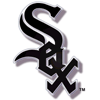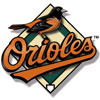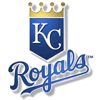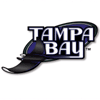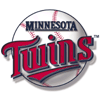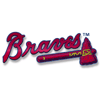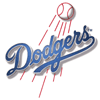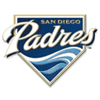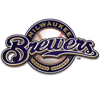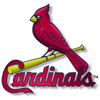Major League Baseball
|
|
Major League Baseball (MLB) is the highest level of play in professional baseball in the world. More specifically, Major League Baseball ("MLB") refers to the entity that operates North America's two top leagues, the National League and the American League, by means of a joint organizational structure which has existed between them since 1920.
Major League Baseball is governed by the Major League Constitution, an agreement that has undergone several incarnations since 1920, with the most recent revisions being made in 2001. Major League Baseball, under the direction of its Commissioner, hires and maintains the sport's umpiring crews, and negotiates marketing, labor, and television contracts. The 'closed shop' aspect of MLB effectively prevents the yearly promotion and demotion of teams into the Major League by virtue of their performance.
MLB also maintains a unique, controlling relationship over the sport, including most aspects of minor league baseball. This is due in large part to a 1922 U.S. Supreme Court ruling which declared baseball is not considered interstate commerce (and therefore not subject to federal antitrust law), despite baseball's own references to itself as an "industry" rather than a "sport."
| Contents |
Current Major Leagues
The Major League season generally runs from early April through the end of September. Players and teams prepare for the season in spring training, primarily in Florida and Arizona, during February and March.
Teams and schedule
In all there are 30 teams in the two leagues: 16 in the elder National League ("NL") and 14 in the American League ("AL"). Each has its teams split into three divisions grouped generally by geography and styled "East," "Central," and "West."
A Major League season normally lasts from the beginning of April to the end of September. Each team's regular season consists of 162 games, a duration established in 1961. From 1898 to 1960, a 154-game schedule was played. Games are played predominantly against teams within each league through an unbalanced schedule which heavily favors intra-divisional play. In 1997 Major League Baseball introduced interleague play, which was criticized by the sport's purists but has since proven very popular with most fans.
All-Star game
Early July marks the midway point of the season, during which a three day break is taken when the Major League Baseball All-Star Game is staged. The All-Star game pits players from the NL, headed up by the manager of the previous NL World Series team, against players from the AL, similarly managed, in an exhibition game. After the 2002 contest ended in a 11-inning tie because both teams were out of pitchers, a result which proved highly unpopular with the fans, it was decided to give the game more impact on the regular season. In 2003 and 2004, the league which won the game received the benefit of home-field advantage (four of the seven games of that year's World Series taking place at their home park). It has yet to be announced if this experiment will continue past 2004. Since the 1970s, the eight position players for each team who take the field initially have been voted into the game by fans. The remaining position players, and all of the pitchers, on each league's roster are solely at the discretion of that team's manager. By MLB regulation, every team in the majors must have at least one designated all-star player, regardless of voting. This rule exists so that fans of every team have a player to watch for in the All Star Game.
Post-season
At the conclusion of the regular season, the three division champions from each league, together with the non-division champion with the best regular season record ("Wild Card") qualify for post-season playoffs. The post-season currently consists of three rounds:
- American League Division Series and National League Division Series, each a best-of-five game series;
- American League Championship Series and National League Championship Series, each a best-of-seven game series played between the surviving teams from the ALDS and NLDS; and
- World Series, a best-of-seven game series played between the champions of each league.
The team belonging to the league that won the mid-season All-Star game receives home-field advantage in that series.
MLB Steroid Policy
Over most of the course of Major League Baseball, steroid testing was never a major issue. However, after the BALCO steroid scandal, which had allegations that top baseball players had used illegal performance enhancing drugs, Major League Baseball has finally decided to crack down on steroids and issue harsher penalties for steroid users. The new policy, which was accepted by Major League Baseball players and owners, was issued at the start of the 2005 season and goes as follows:
The 1st positive test will result in a suspension of up to 10 days. The 2nd positive test will result in a suspension of 30 days. The 3rd positive test will result in a suspension of 60 days. The 4th positive test will result in a suspension of one full year. Finally the 5th positive test will result in a penalty at the commissioner?s discretion. Players will be tested at least once per year, with the chance that several players can be tested a numerous amount of times per year.
This program would replaces the previous steroid testing program under which, for example, no player was even suspended in 2004. Under the old policy, which was established in 2002, a first time offense would only result in treatment for the player. The new agreement makes sure that first time offenders are rightfully suspended.
In recent news, Bud Selig, the Commissioner of MLB, has proposed even tougher penalties for positive tests than the ones in place today. The new penalties that Bud Selig has proposed are a ?three strikes and you?re out approach? and go as follows:
The 1st positive test would result in a 50 game suspension. The 2nd positive test would result in a 100 game suspension. Finally, the 3rd positive test would result in a lifetime suspension from MLB.
These new proposed penalties are much harsher, however they must be accepted by MLB players and owners before any changes can be made.
References
http://www.source4tickets.com/articles/69.cfm http://www.wnbc.com/mikedup/4077510/detail.html
Current Teams of Major League Baseball
At the time of writing the Commissioner of Baseball, Bud Selig, has often floated the idea of international expansion and realignment of the major leagues. At the moment, however, the major leagues are each split into three divisions, and structured as follows:
American League
| West | Central | East |
|---|---|---|
| Missing image
Los_Angeles_Angles_100.gif Image:Los Angeles Angles 100.gif Los Angeles Angels of Anaheim? | ||
National League
| West | Central | East |
|---|---|---|
| <center>Missing image PittsburghPirates_100.png Image:PittsburghPirates 100.png Pittsburgh Pirates | <center>Missing image Nationals_200x151.jpg Washington Nationals† | |
† In 2002, Major League Baseball, through a subsidiary (Baseball Expos, L.P.), acquired the National League's Montreal Expos franchise with the intent of ceasing its operations. However, a new collective bargaining agreement with the powerful baseball players union in effect stopped that maneuver. The team has been relocated for 2005 to Washington D.C. and renamed the Washington Nationals. MLB continues its search for someone to acquire the franchise.
? On January 3rd, 2005, the Anaheim Angels baseball organization announced that it would change the team's name to the Los Angeles Angels of Anaheim. The move is very controversial and is being countered by the city of Anaheim, California which owns Angel Stadium, and seeks to reverse the name-change based on its lease agreement with the organization. The contract, signed by previous ownership, requires the team name to contain the name of the city in it.
Historical Major Leagues
In 1969, the centennial of professional baseball, a commission chartered by Major League Baseball identified the following leagues as "major leagues". The list is sometimes disputed by baseball researchers. The MLB list included the following:
- 1876-present: National League of Professional Baseball Clubs
- 1882-1891: American Association
- 1884: Union Association
- 1890: Players League
- 1901-present: American League
- 1914-1915: Federal League
Some researchers contend that the National Association (1871-1875), the Negro Leagues (primarily during the years from 1921-1946), and the first year of the American League (1900) deserve consideration as major leagues due to the caliber of player and the level of play exhibited. However, game and statistical records for these particular leagues were not kept in a consistent manner.
Related articles
- History of baseball, for a detailed history of the Major Leagues
- 1994 baseball strike
- Minor league baseball, for a list of Minor Baseball teams
- Negro League baseball
- Continental League
- 19th century National League teams
Players, ownership, ballparks and officials
- Baseball Commissioners
- List of highest paid baseball players
- List of major league players with articles
- List of Major League Baseball principal owners
- List of Major League Baseball stadiums
- List of Major League Baseball retired numbers
Statistics, milestones and records
- Baseball statistics: BA, ERA, etc.
- Baseball Hall of Fame
- 30-30 club and 40-40 club
- 300-300 club
- List of lifetime home run leaders through history
- 500 home run club
- List of major league players with 2,000 hits
- 3000 hit club
- 300 win club
- 3000 strikeout club
- Major League Baseball franchise post-season droughts
- Perfect game
- Unassisted triple play
- Triple crown
- Hitting for the cycle
- Major League Baseball titles streaks
- Major League Baseball titles leaders
- Major League Baseball attendance records
- Major League Baseball home run milestones
- List of most experienced baseball players never to play in a World Series
Post-season awards
- Cy Young Award
- Rawlings Gold Glove Award.
- Hank Aaron Award
- Manager of the Year Award
- Most Valuable Player Award
- The Sporting News Reliever of the Year Award (prior to 2001, TSN Fireman of the Year)
- Rolaids Relief Man of the Year Award
- Rookie of the Year Award
- Silver Sluggers
Exhibition and playoffs
- All-Star Game
- National League pennant winners 1876-1900
- American League pennant winners 1901-68
- National League pennant winners 1901-68
- MLB division winners (since 1969)
- American League Division Series (ALDS)
- National League Division Series (NLDS)
- American League Championship Series (ALCS)
- National League Championship Series (NLCS)
- World Series
External links
- Official MLB website (http://www.mlb.com/)
- National Baseball Hall of Fame (http://baseballhalloffame.org)
- Baseball-Reference.com (http://www.baseballreference.com)
- Baseball Prospectus (http://www.baseballprospectus.com)
- Baseball Think Factory (http://www.baseballthinkfactory.com)
- All-Baseball.com (http://www.all-baseball.com)
- The Hardball Times (http://www.hardballtimes.com)
- Ballparks.com (http://www.ballparks.com)
- ESPN.com - Baseball Index (http://sports.espn.go.com/mlb/index)
- InsideTheParks.com (http://insidetheparks.com/)


